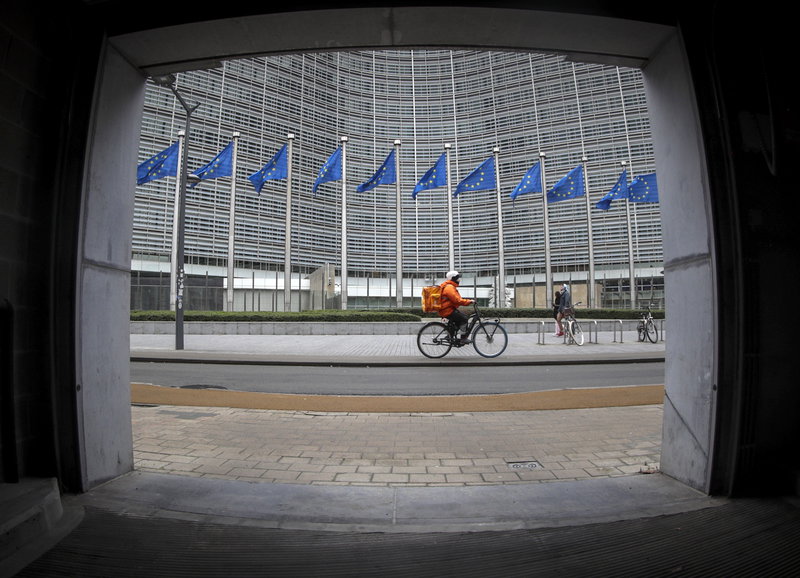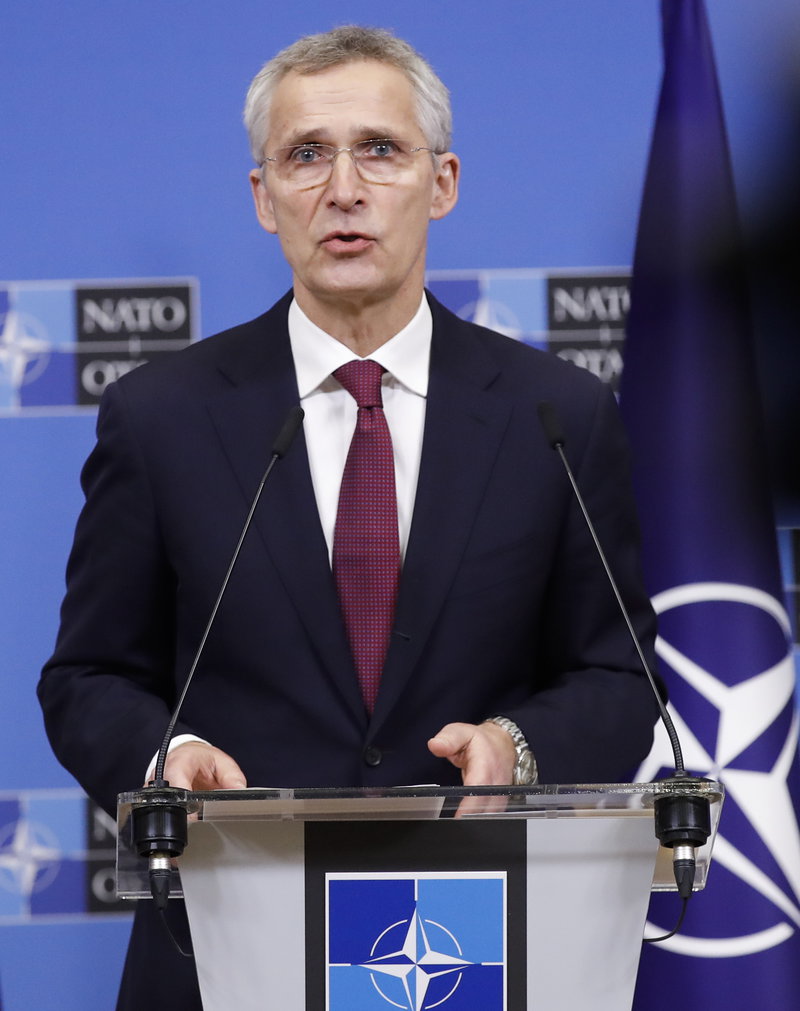The spy capital
Diplomats, civil servants, journalists and academics move around the European Union capital of Brussels without being what their credentials say they are
The Russian headquarters had become a platform for the entry into Europe of agents sent by the Kremlin
Diplomatic branches in Brussels:
in total, there are around 5,000 diplomats in the Belgian capitalYears in prison:
the proposed new punishment for the crime of espionage in BelgiumThey have access to any type of event, raise their hands at press conferences and roam the bars and restaurants usually attended by officials of EU institutions and diplomats. In Brussels, spies quietly wander around without much trouble. With a little effort, they can pretend to be professionals from any field and enter wherever they want to access relevant information. Jobs in academia or in think tanks are also attractive hiding places for agents.
It is no secret that there are spies in Brussels, home to the EU and NATO. Everyone knows they are there and that their activities are concentrated in the European quarter, where not only institutions, but also hundreds of organisations, companies and lobby groups have their headquarters.
If it’s information you’re looking for, this is the place to get it. In the EU capital, the parties that bring together workers from EU institutions, diplomats, journalists and civil servants at the end of the week in the well-known Luxembourg Square, in the heart of the European quarter, right in front of the European Parliament building, are well known. It’s also not uncommon to spot a politician among them.
This is where the people from the so-called “Brussels bubble” meet, those who work with EU information, and the relaxed atmosphere is the ideal breeding ground for spies. It is no surprise, then, that the delegations of countries and institutions alert their diplomats and officials to the issue.
Brussels is not just any city. It’s the venue with the second highest number of diplomatic branches in the world, 184, and some 5,000 diplomats. Espionage in the EU capital is not new, but it takes on special relevance in today’s geopolitical context marked by the Russian invasion of Ukraine and changes in international power relations.
The US, infiltrated in networks
Javier Solana, high representative for EU Foreign and Security Policy between 1999 and 2009, admitted more than a decade ago that he had been notified of a major power from outside the EU spying on him for several months while in office, without him being aware of it. If the highest community agencies can suffer such attacks, then anyone is a potential victim.
“There’s no way around it. You just have to assume that the Russians and the Chinese are always listening,” said US Ambassador to Belgium Howard Gutman. As Washington’s representative in Brussels pointed out, Russia and China have the largest network of spies, with the suspicion that both Moscow and Beijing have hundreds of agents deployed throughout the city.
When Gutman admitted that espionage was inevitable, he knew what he was talking about. His own country does the same. The spy game in Brussels has many players and the US and Israel are also part of it.
In fact, Gutman himself was called for consultations by Belgium’s then Interior Minister, Didier Reynders, to explain his country’s espionage of EU institutions and delegations of EU countries: the US secret service had infiltrated internal computer networks and intercepted calls and emails.
Mass expulsions
Although the Belgian security services are not authorised to comment on the number of spies in the country, the Belgian media have said that a third of Russian diplomats are actually intelligence officers. It comes as no surprise, then, that the Russian embassy in Brussels is a communication hub for Russian intelligence services, as a journalistic investigation by Belgian media outlets De Tijd and Nieuwsur revealed.
Although the Belgian government expelled more than 20 Russian spies after the Ukrainian war began, the investigation by the two media outlets concluded that there are still dozens of Russian spies left in the Belgian capital, and now with more work than ever, because diplomatic relations at the moment between Russia and the EU are not exactly at their best.
The Russian embassy in Brussels is located in Uccle, one of the city’s 19 districts, but physically some distance from the European quarter. This is an area where there are also other diplomatic residences, so the building presided over by the Russian flag does not attract attention from the outside. However, according to the Belgian intelligence services, the building has been a gated community for years, even with school facilities, apartments and strict internal controls. The goal is to send encrypted information directly from there to Moscow. Despite knowing of its existence, Belgium had not dared expel the Russian spies it had detected in the country until the Russian invasion of Ukraine. The reason was clear: Moscow would respond in kind, and it was better to be able to keep personnel in Russia.
Sometimes it is also not so easy to know who the spies are – it is not always Russians… sometimes European diplomats become agents of the Kremlin. This was the case of Herman Simm, former head of the security department of the Estonian Ministry of Defence, and Clement Vandenborre, former head of Belgian counterintelligence. Both sent information to the Kremlin for decades.
NATO is another key place for spies. It’s been just over a year since the last Russian spies posing as diplomats left the Alliance’s headquarters. After many purges by the Atlantic Alliance, Russian president Vladimir Putin closed the Russian embassy to NATO. According to Western counterintelligence services, the Russian headquarters had become a platform for the entry into Europe of agents sent by the Kremlin. That they were spies is no secret. This was acknowledged by NATO Secretary-General Jens Stoltenberg himself. “They were Russian intelligence agents,” the former Norwegian prime minister said, detailing that the information came from Western intelligence services.
Although in the current context it may be hard to believe, contacts between the Alliance and Russia had been constant and fluid. For example, ambassadors met at least once a year under the NATO-Russia Council, and Moscow even had a venue in the former headquarters of the Atlantic Alliance in the European capital. This did not mean that NATO was not aware of the presence of spies. On the contrary: they estimated that at least half of their NATO-accredited representatives were actually Kremlin agents. The Alliance simply looked the other way.
Belgium is now carrying out a reform of the Criminal Code that provides for harsher prison sentences for both espionage and foreign interference. The Belgian Minister of Justice, Vincent van Quickenborne, justified the changes to adapt the sanctions to the current international and geopolitical context.
Living with doubt
The decision has not come out of nowhere. It was the prosecutors themselves who asked to amend the Criminal Code to have more severe punishments for spies, given that the country is a diplomatic hub.
According to the new code, which is expected to be approved before the summer, the penalties for espionage are being raised to 10 years in prison and up to five years in the case of foreign interference. In addition, the new rules provide for penalties for interference by a foreign power in decision-making processes in Belgium.
Feature international




